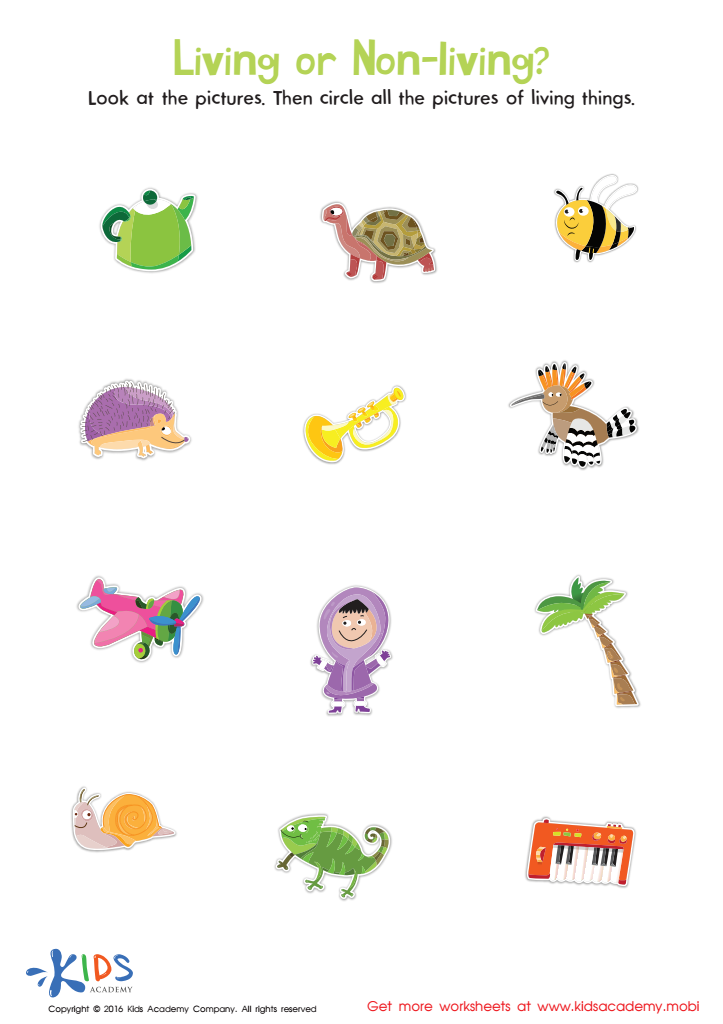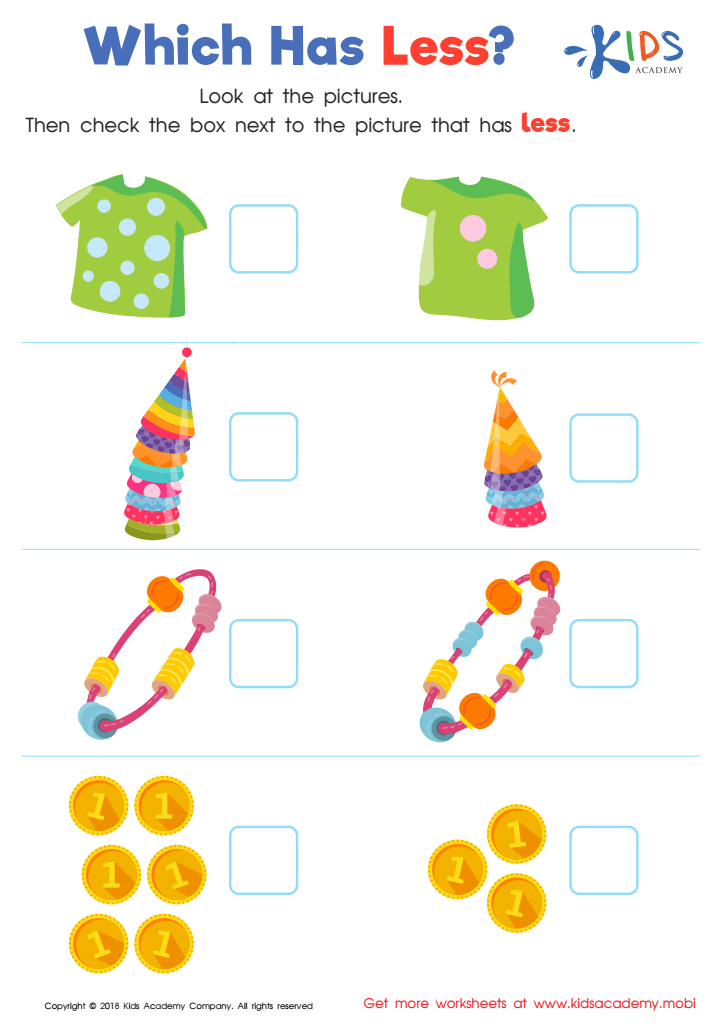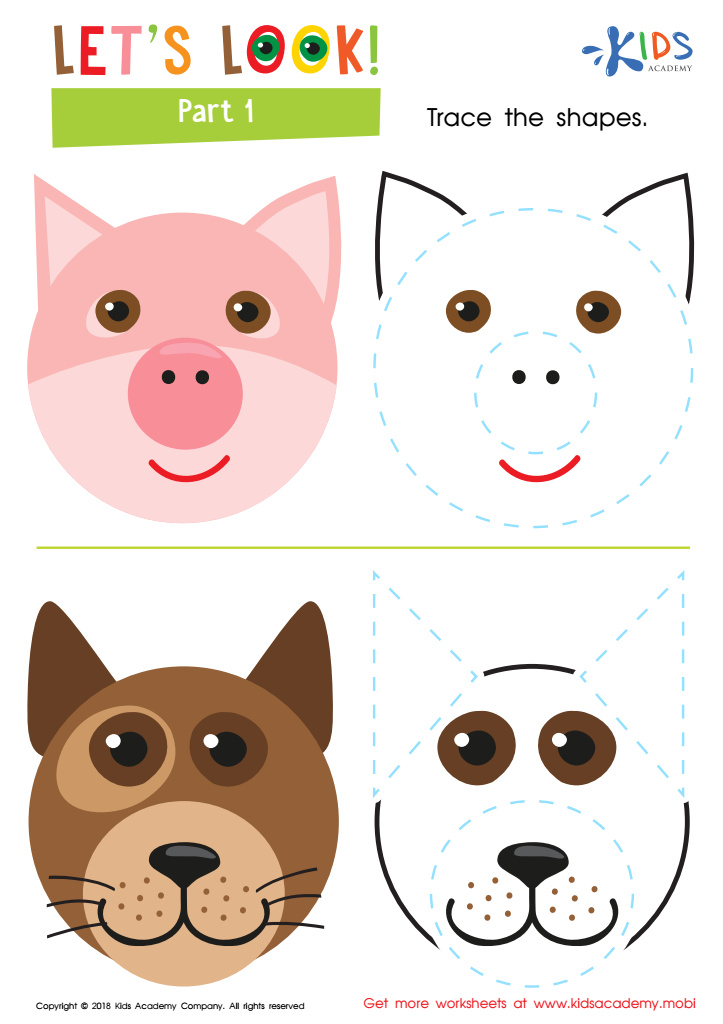Improving observation Math Worksheets for Ages 5-9
3 filtered results
-
From - To
Enhance your child’s learning experience with our "Improving Observation Math Worksheets" designed for ages 5-9! These engaging worksheets focus on developing keen observation skills through fun and interactive math activities. Children will explore essential concepts such as shapes, patterns, and spatial awareness while sharpening their analytical abilities. Each worksheet fosters critical thinking and encourages problem-solving through vibrant visuals and relatable scenarios tailored to kindergarten and early elementary levels. Ideal for use at home or in the classroom, our resources provide unlimited opportunities for young learners to thrive in a supportive and enriching environment. Start building strong observation skills today!


Identifying Living and Non–living Things Sorting Worksheet


Which Has Less? Worksheet


Let's Look! Part 1 Worksheet
Improving observational math skills for children aged 5-9 is crucial for their overall cognitive development and future academic success. At this early stage, children are naturally curious and eager to explore their surroundings, making it an ideal time to cultivate their mathematical understanding through observation. Observational math involves recognizing patterns, measuring, comparing, and problem-solving in everyday contexts, which lays the groundwork for more complex mathematical concepts.
Parents and teachers should prioritize this aspect of learning because it helps children develop critical thinking and reasoning skills. Engaging children in observational math encourages them to ask questions, make predictions, and test their ideas, fostering a love for mathematics and instilling confidence in their abilities. Moreover, these skills transfer to various disciplines, enhancing students’ ability to analyze information and make informed decisions, which are vital in today’s data-driven world.
By focusing on improving observational math, caregivers can better prepare children for future academic challenges, boost their enthusiasm for learning, and promote a holistic approach to education that connects mathematical concepts with real-world experiences. Ultimately, supporting this developmental phase leads to stronger foundational skills that will benefit children throughout their educational journeys and beyond.
 Assign to My Students
Assign to My Students





.jpg)















